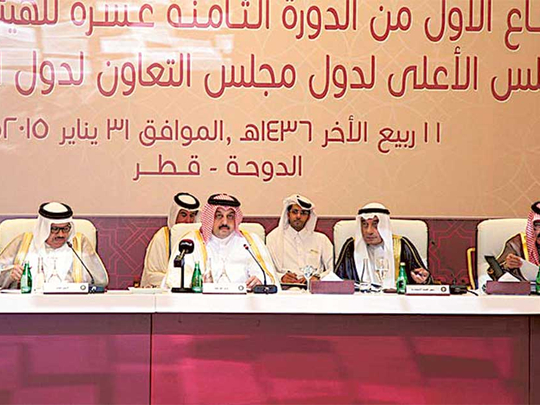
Manama: Qatar’s Foreign Minister said that effective cooperation and integration among Gulf Cooperation Council (GCC) countries is required to enable them to confront the exceptional circumstances, internal challenges and external crises through which the Arab world is going.
Addressing the opening session of the GCC Consultative Authority meeting in the Qatari capital Doha, Khalid Bin Mohammad Al Attiyah said that such cooperation and integration would fortify the GCC states and strengthen their economic, social, political and security fabric, protect their gains and fulfil the aspirations of their peoples to avoid any shocks or crises that will affect their drive and the well-being of their citizens, Qatar News Agency (QNA) reported on Saturday.
The GCC, founded in 1981, comprises Bahrain, Kuwait, Oman, Qatar, Saudi Arabia and the United Arab Emirates.
Qatar currently holds the rotating annual presidency of the alliance after it hosted the GCC summit in December.
The Consultative Authority is charged with studying ways to enhance cooperation between GCC members, to improve incomes for GCC citizens and to draw up the future of oil and gas as a source of wealth for the GCC members. The Authority was also charged with coming up with a plan for maintaining the use of energy resources in a strategic and developmental manner.
“We in the ministerial council are confident that your esteemed authority represents one of the most important aspects of the common work in the GGC,” Al Attiyah said. “We are waiting for visions on the issues assigned to your authority at the last GCC summit, namely strengthening the partnership between the public and private sectors in the GCC countries, the growth of GCC nationals’ income and their well-being, the future of oil and gas as a source of wealth and energy in GCC states and the importance of maintaining them as a strategic, security and developmental choice.”











